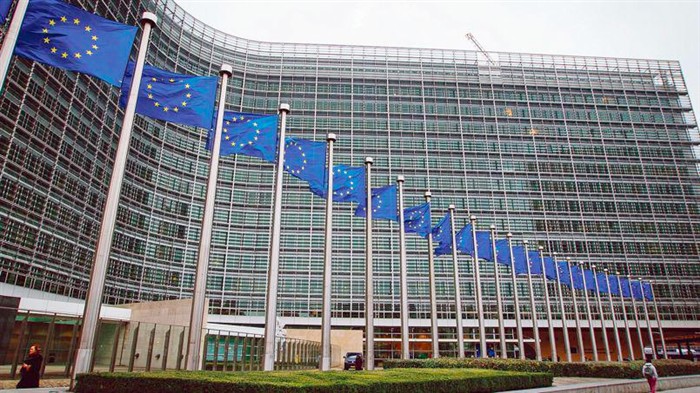

Image credit: European Commission
The regulatory clampdown on big name tech firms continues after the European Union this week officially unveiled its proposals for digital market regulations.
The EU announcement reveals that tech giants could be fined up to 10 percent of their annual turnover for breaching new EU rules concerning protection of customer data, as well as fines of 2 percent of their global turnover for breaching EU cybersecurity rules.
The Digital Services Act (DSA) and Digital Market Act (DMA) rules in particular target “very large” companies such as Google, Facebook or Amazon.
The EU stated these new rules are designed to “better protect consumers and their fundamental rights online, and will lead to fairer and more open digital markets for everyone.”
“The two proposals serve one purpose: to make sure that we, as users, have access to a wide choice of safe products and services online,” explained Margrethe Vestager, executive VP said: “And that businesses operating in Europe can freely and fairly compete online just as they do offline. This is one world. We should be able to do our shopping in a safe manner and trust the news we read. Because what is illegal offline is equally illegal online.”
Another official also noted the role that technology now plays in people’s every day lives.
“Many online platforms have come to play a central role in the lives of our citizens and businesses, and even our society and democracy at large,” said Commissioner for Internal Market Thierry Breton.
“With today’s proposals, we are organising our digital space for the next decades,” said Breton. “With harmonised rules, ex ante obligations, better oversight, speedy enforcement, and deterrent sanctions, we will ensure that anyone offering and using digital services in Europe benefits from security, trust, innovation and business opportunities.”
But what exactly are the two pieces of regulation that the EU are proposing?
The DSA targets tech platforms that are used “as a vehicle for disseminating illegal content, or selling illegal goods or services online.”
“Under the Digital Services Act, binding EU-wide obligations will apply to all digital services that connect consumers to goods, services, or content, including new procedures for faster removal of illegal content as well as comprehensive protection for users’ fundamental rights online,” said the EU.
“”The Digital Services Act will introduce a series of new, harmonised EU-wide obligations for digital services,” it said.
The DMA on the other hand will “addresses the negative consequences arising from certain behaviours by platforms acting as digital ‘gatekeepers’ to the single market.”
It targets those “gatekeeper” firms that engage in unfair business practices.
Specifically, the Digital Markets Act will:
The proposal will have to be approved by EU member states and the European Parliament before it can go into effect, a process which could take several years.
American space agency prepares for testing of Boeing's Starliner, to ensure it has two space…
As UK and Europe develop closer military ties, European Commission says it will invest €1.3…
Zuckerberg seeks to revive Facebook's original spirit, as Meta launches Facebook Friends tab, so users…
Notable development for Meta, after appeal against 2021 WhatsApp privacy fine is backed by advisor…
First sign of shake-up under new CEO Lip-Bu Tan? Three Intel board members confirm they…
Trump's nominee for SEC Chairman, Paul Atkins, has pledged a “rational, coherent, and principled approach”…